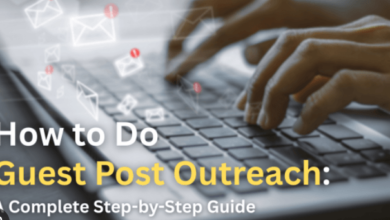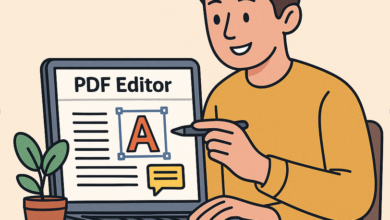Will Machines Replace Artists? Generative AI’s Effect on the Creative Sector

Generative AI has brought significant advancements and transformations across various sectors, including the creative industry. As AI technologies become more sophisticated, the question arises: will machines replace artists? The future of human creativity is a topic of discussion due to the significant influence of generative AI on the creative process. For those eager to understand and harness this technology, enrolling in an AI course in Bangalore can provide invaluable insights and skills.
Understanding Generative AI in Creativity
Generative AI refers to algorithms that can produce new content—such as art, music, and literature—by learning from existing data. Techniques like Generative Adversarial Networks (GANs) and Variational Autoencoders (VAEs) enable these systems to generate outputs that closely resemble human-created work. While these advancements are impressive, they also raise questions about the role of human artists in an increasingly automated world.
A generative AI course delves into the mechanisms of these models, exploring how they learn and create. It provides a strong basis for anyone wishing to work in this industry.
Generative AI in Visual Arts
Generative AI has proven capable of producing intricate and beautiful works of art in the visual arts. These AI-generated pieces often challenge traditional notions of creativity and authorship. Artists like Refik Anadol use AI to transform data into dynamic visual experiences, blending art and technology in innovative ways.
But the central query still stands: Is it possible for AI to fully imitate the richness and complexity of human creativity? While AI can generate visually appealing pieces, it lacks the emotional context and intent that human artists imbue in their work. Thus, rather than replacing artists, AI serves as a tool that expands creative possibilities.
For aspiring digital artists, an AI course in Bangalore provides practical knowledge on integrating AI tools with traditional art techniques, fostering a symbiotic relationship between man and machine.
Music Composition and Generative AI
Generative AI is also making waves in music composition. AI systems like OpenAI’s MuseNet can compose music in various styles, from classical to contemporary, by learning from vast datasets of musical compositions. These technologies allow musicians to experiment with new sounds and compositions, pushing the boundaries of musical creativity.
Despite AI’s capabilities, human musicians remain indispensable. The emotional expression, cultural context, and personal experiences that musicians bring to their compositions are aspects that AI cannot fully replicate. Generative AI, therefore, acts as a collaborator, providing new tools and perspectives for musicians.
A generative AI course often includes modules on AI in music, helping students explore how these technologies can complement and enhance musical creativity.
Literature and Language Generation
In literature, generative AI models like GPT-3 can write articles, stories, and even poetry. These models generate text based on patterns learned from large corpora of written works. While AI-generated text can be coherent and stylistically diverse, it often lacks the depth, nuance, and originality of human writing.
Authors and writers can use AI as an aid for brainstorming, drafting, and editing rather than a replacement. However, the human touch in storytelling—empathy, cultural insights, and personal experiences—remains irreplaceable.
An AI course in Bangalore covers natural language processing and text generation, providing writers with the tools to incorporate AI into their creative processes.
Generative AI in Design and Architecture
Designers and architects are leveraging generative AI to create innovative designs and optimize architectural structures. AI can generate numerous design variations, identify optimal solutions, and even predict structural performance, enhancing efficiency and opening up new creative possibilities.
While AI assists in the design process, human designers’ creative vision and decision-making are crucial. AI can suggest designs, but the human touch aligns these designs with cultural, aesthetic, and functional considerations.
Enrolling in a generative AI course provides designers with the knowledge to use various AI tools effectively, combining technical capabilities with creative insights.
Read also: What is BLIP Technology and How Can It Enhance The Franchise Experience?
The Human-AI Collaboration
The true potential of generative AI lies in human-AI collaboration. AI can handle repetitive and technical tasks, allowing artists to focus on their work’s conceptual and expressive aspects. This collaboration enhances creativity, efficiency, and innovation.
Artists who understand and embrace AI technologies can expand their creative horizons and remain at the forefront of their fields. An AI course in Bangalore offers hands-on experience with AI tools, preparing artists and creatives to effectively collaborate with AI.
Ethical Considerations and the Future
As generative AI becomes more prevalent, ethical considerations around authorship, originality, and the value of human creativity arise. It is essential to ensure that AI-generated works are used ethically and that human artists receive due credit and compensation.
The future of the creative industry will likely see a blend of human and AI-driven creativity. Artists who adapt to this changing landscape and leverage AI tools will continue to thrive.
Conclusion
Generative AI is reshaping the creative industry, offering new tools and possibilities for artists, musicians, writers, and designers. While AI can generate impressive content, it does not replace the human touch that is central to true creativity. Instead, AI serves as a powerful collaborator, enhancing and expanding human potential. For those interested in exploring this intersection of art and technology, enrolling in a generative AI course is an excellent way to gain the skills and insights needed to thrive in this evolving field. By embracing AI, artists can push the boundaries of creativity, innovate, and shape the future of the creative industry.
For More details visit us:
Name: ExcelR – Data Science, Generative AI, Artificial Intelligence Course in Bangalore
Address: Unit No. T-2 4th Floor, Raja Ikon Sy, No.89/1 Munnekolala, Village, Marathahalli – Sarjapur Outer Ring Rd, above Yes Bank, Marathahalli, Bengaluru, Karnataka 560037
Phone: 087929 28623
Email: enquiry@excelr.com



